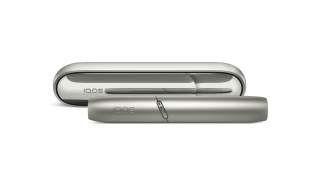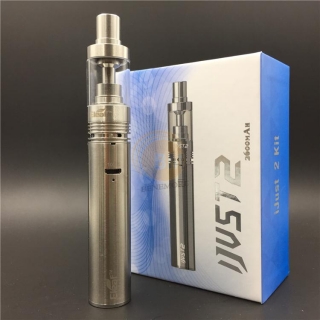Tobacco Regulation Needs to Keep Pace with Innovation
More regulation and taxation alone will not be enough to end smoking says, Philip Morris South Africa
The draft Control of Tobacco Products and Electronic Delivery Systems Bill, will not effectively reduce cigarette sales or smoking-related harm in the country, according to Philip Morris South Africa.
The Bill is fiercely debated and there have been calls by some to accelerate its implementation.
“On one side of the debate are those who would see less harmful nicotine products including e-cigarettes, heated tobacco products and snus, regulated the same as the most harmful products, namely cigarettes,” says Rishaad Hajee, Head of Corporate Communications at Philip Morris South Africa. “This approach doesn’t consider the growing body of scientific evidence which shows that not all nicotine-containing products are the same and turns a blind eye to the principle of tobacco harm reduction.”
Hajee explains that tobacco harm reduction (THR) is the principle of replacing cigarettes, which are known to be the most harmful form of nicotine consumption, with smoke-free products that are better alternatives for those adults who would otherwise continue to smoke. “These alternatives are not risk-free but can be a much better choice than cigarettes. The burning of tobacco produces the vast majority of harmful chemicals in cigarette smoke, and by eliminating the burning process—as is the case with these products—the levels of harmful chemicals generated can be significantly reduced compared with cigarette smoke,” he adds.
Public health experts agree that the harmful chemicals released from burning tobacco are the main cause of smoking related diseases, not nicotine. While they contain nicotine, which is addictive and not risk free, smoke-free alternatives generate lower levels of harmful chemicals and have an important role to play in reducing the health burden caused by smoking cigarettes.
In Japan, between 2015 and 2019, the total cigarette sales in Japan dropped by 34%, which can be associated with the introduction of heated tobacco products.
“South Africa can achieve similar success if it implements regulatory frameworks that recognise that not all tobacco products are the same,” Hajee explains. “Sensible regulation is key to striking the right balance. This means adopting regulation that recognizes the role of these alternatives in helping those adults who would otherwise continue to smoke to move away from cigarettes, while protecting youth and non-smokers.”
The draft Bill was first published in 2018 and did not treat alternative nicotine-containing products differently from cigarettes. Hajee states that this indicates that South Africa’s tobacco regulations are not keeping pace with science and innovation and are not including tobacco harm reduction as part of the strategy for tobacco regulation or policy-making.
“The Control of Tobacco Products and Electronic Delivery Systems Bill is the perfect opportunity for regulators to review the evidence and facts,” he says. “With the right regulatory encouragement and support from civil society, and the medical and scientific community, cigarette sales can end sooner."
“Scientific evidence and transparency remain our strongest tools to achieve this and enable people to make informed decisions,” Hajee adds. “The 11 million men and women who smoke in South Africa deserve nothing less.”
-- ENDS --
Issued on behalf of Philip Morris South Africa
Philip Morris International: Delivering a Smoke-Free Future
Philip Morris International (PMI) is leading a transformation in the tobacco industry to create a smoke-free future and ultimately replace cigarettes with smoke-free products to the benefit of adults who would otherwise continue to smoke, society, the company, its shareholders and its other stakeholders. PMI is a leading international tobacco company engaged in the manufacture and sale of cigarettes, as well as smoke-free products, associated electronic devices and accessories, and other nicotine-containing products in markets outside the U.S. In addition, PMI ships versions of its IQOS Platform 1 device and consumables to Altria Group, Inc. for sale under license in the U.S., where these products have received marketing authorizations from the U.S. Food and Drug Administration (FDA) under the premarket tobacco product application (PMTA) pathway; the FDA has also authorized the marketing of a version of IQOS and its consumables as a Modified Risk Tobacco Product (MRTP), finding that an exposure modification order for these products is appropriate to promote the public health. PMI is building a future on a new category of smoke-free products that, while not risk-free, are a much better choice than continuing to smoke. Through multidisciplinary capabilities in product development, state-of-the-art facilities, and scientific substantiation, PMI aims to ensure that its smoke-free products meet adult consumer preferences and rigorous regulatory requirements. PMI’s smoke-free product portfolio includes heat-not-burn and nicotine-containing vapor products. As of June 30, 2021, PMI’s smoke-free products are available for sale in 67 markets in key cities or nationwide, and PMI estimates that approximately 14.7 million adults around the world have already switched to IQOS and stopped smoking. For more information, please visit www.pmi.com and www.pmiscience.com.
Heated Tobacco is Driving Cigarette Sales Down
The growth of heated tobacco products (HTPs) is increasing and in markets like Japan, is likely causing a decline in cigarette sales.
A recent whitepaper report, conducted by Frost & Sullivan - ‘Tobacco Harm Reduction and Novel Nicotine and Tobacco Products: Evidence from the Japanese Market’ shows that the sale of conventional cigarettes in Japan has reduced by 34 percent between 2015 and 2019. It states: “It is likely that the introduction of HTPs in Japan has caused a significant decline in cigarette sales, well above the previous rate of decline.”
According to the report, from 2011 to 2016, sales of cigarettes declined by about 2-4 percent annually, while a decline of 13 percent in cigarette sales occurred in 2017, 12 percent in 2018, and 9 percent in 2019, indicating a much more significant decline over this period. It concludes that the accelerated decline in cigarettes-only sales in Japan since 2016 corresponds to the introduction of and growth in the sales of HTPs.
IQOS, Philip Morris International’s leading heated tobacco product, was first available in Japan from 2014 with a limited launch followed by a full roll out by April 2016.
“These findings suggest that scientifically substantiated smoke-free alternatives, such as IQOS, have a role to play in providing smokers who don’t quit with less harmful alternatives than cigarettes,” says Philip Morris South Africa’s Managing Director, Branislav Bibic. “There is a real opportunity in South Africa to look at how this decline was achieved, and the regulations implemented by the Japanese government to make this possible in the interest of public health.”
The whitepaper report states that “the Japanese government is differentiating HTPs from conventional cigarettes in regulations, with HTPs generally receiving less-stringent regulatory settings than conventional cigarettes.”
Most notably Bibic adds that the introduction of HTPs has not caused an increase in overall sales of tobacco products, and the availability of HTPs has had a low impact on the initiation of tobacco use by never-smokers and re-initiation by former smokers.
He explains that HTPs are less harmful than smoking cigarettes because they heat tobacco instead of burning it. “Burning tobacco releases harmful chemicals which experts agree are the main cause of smoking-related diseases. “IQOS produces 95% lower levels of harmful chemicals compared to the smoke of a reference cigarette,” he says. “IQOS is not risk-free, and this doesn’t necessarily equate to a 95 percent reduction in risk, but it is a better choice than continuing to smoke.”
Bibic adds that since IQOS does not burn tobacco, it doesn’t produce tar which is one of the most harmful elements of cigarette smoke. It generates an aerosol that is fundamentally different from “tar” and consists of significantly lower levels of harmful chemicals compared to cigarette smoke.
“There are 11-million adult smokers in South Africa, which is almost one-fifth of the population, most of whom will continue to smoke cigarettes,” he explains. “Regulations that enable adult smokers to understand why these products are different from cigarettes, and that encourage those who would otherwise continue smoking to change to less harmful alternatives are needed in South Africa to accelerate the decline of smoking.”
For more information visit: www.iqos.co.za
-- ENDS --
Issued on behalf of Philip Morris South Africa.
iJust 2: The Vape For Vapers Who Know Nothing About Vaping
The eLeaf iJust 2 is a sub-ohm electronic cigarette device, also know as a "vape" by enthusiasts which, is manufactured by Chinese e-cigarette manufacturer iSmoka Electronics Company Ltd, widely sold throughout the world by various vape retailers, of which, Maximum Vape is one.
The eLeaf iJust 2 is a great starter vape device for vapers who know nothing about vaping. It offers the user a easy to assemble tank with interchangeable 0.3 and 05 ohm coils, it is pocket-sized, making it easy to carry around no matter where you go and provides its users with a large liquid capacity of 5.5ml, making it possible to keep more liquid in your tank, reducing constant refilling.
The iJust 2 has a 2600mAh battery capacity that lasts the average user between 6 and 36 hours, depending on frequency of use. The device comes at an affordable initial investment and its interchangeable coils are just as affordable and can last anywhere between 1 and 4 weeks on average (again, based on frequency of use). The device also comes in a newly-released iJust 2 mini which is a smaller and more compact device with all the same benefits.
Maximum Vape has sold dozens of iJust 2 devices without a single complaint or return on this device. Some of the users have commented that the device "creates great clouds" and "is really easy to use" and comes "at a really affordable price" at a price of R750.00incl.VAT which includes:
- 1×iJust 2/iJust 2 Mini Mouthpiece
- 1×iJust 2/iJust 2 Mini Atomizer Tube
- 1×EC 0.3ohm Head
- 1×iJust 2/iJust 2 Mini Atomizer Standard Base
- 1×iJust 2/iJust 2 Mini Battery
- 1×Airflow Control Ring1×USB Cable
- 1×User Manual
As a starter kit, the iJust 2 is a great vape device for any new vapers and an excellent method to reduce and potentially completely remove the need for traditional tobacco products by providing users with the options of 0mg, 3mg and 6mg from Maximum Vape's very own premium vape liquid supply which comes to its users at only R200.00incl. VAT for a 50ml bottle.




